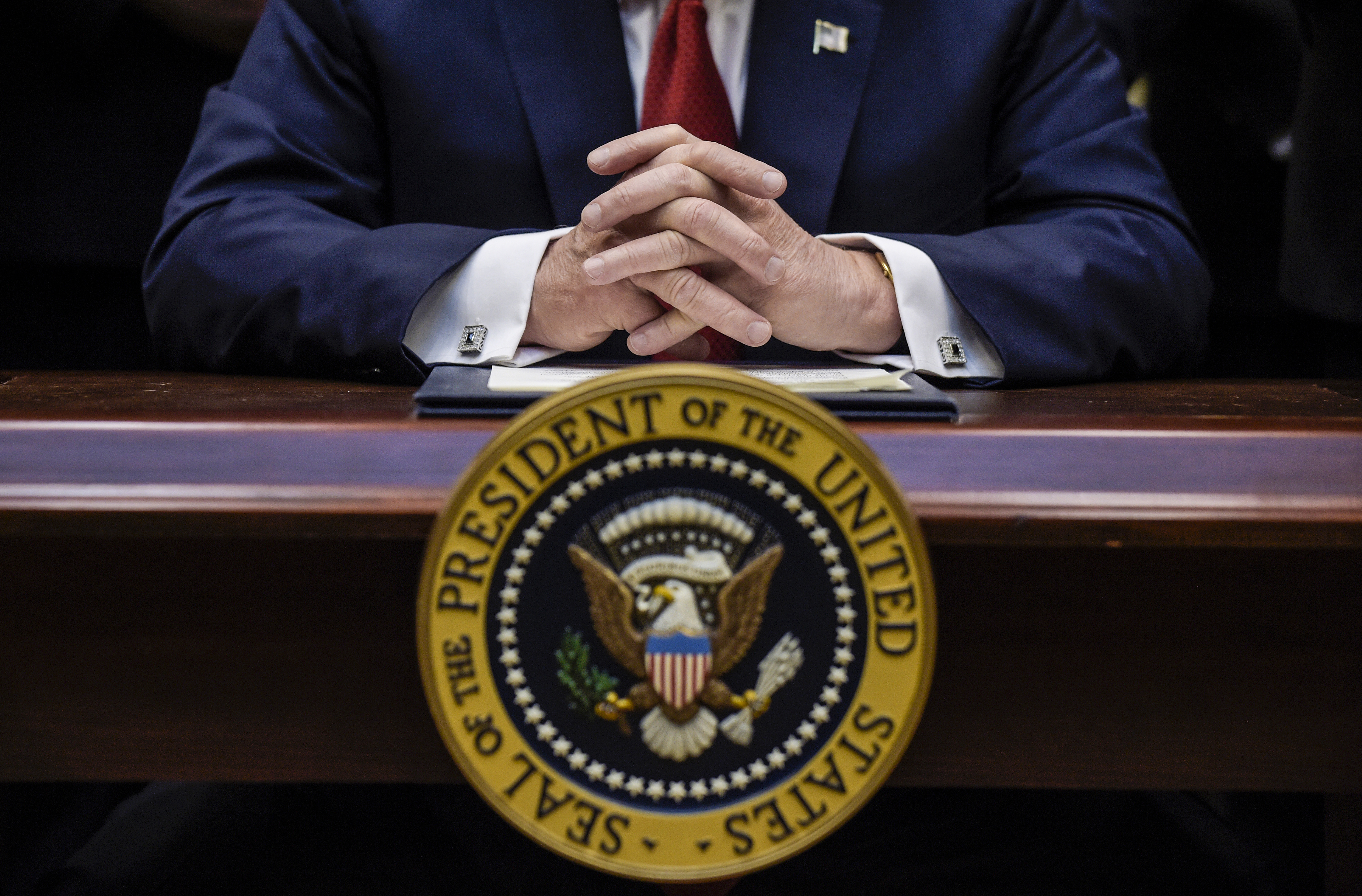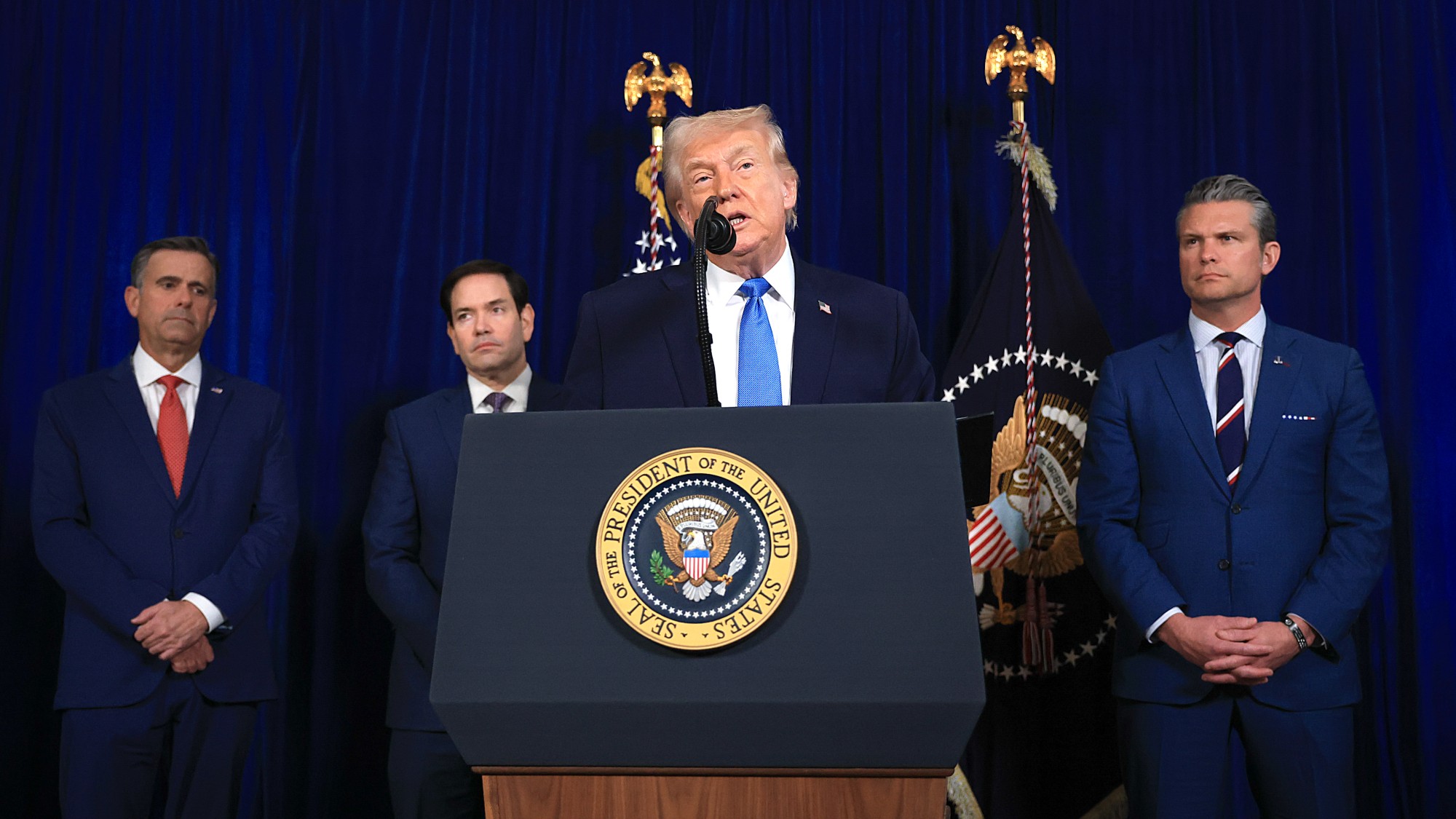Why President Trump is singularly incapable of negotiating a budget bill
America's master negotiator is in trouble


Unless Congress can get past its differences and pass some kind of budget bill by Friday, the government is going to shut down. Fortunately for us, our new president is a master negotiator, the man who literally wrote the book on dealmaking. With his broad experience and unparalleled insight into human nature, it should be no problem for him to get members of Congress in both parties to arrive at a mutually beneficial settlement.
I'm kidding, of course. In fact, we've already seen that President Trump is actually a terrible dealmaker, at least when it comes to the kind of deals he has to make now.
That isn't to deny that he made plenty of good deals during his business career, so long as you define "good" as "good for Donald Trump." The problem is that the kind of deals he made then are completely different from the ones he has to make now — and there's no evidence he understands how.
The Week
Escape your echo chamber. Get the facts behind the news, plus analysis from multiple perspectives.

Sign up for The Week's Free Newsletters
From our morning news briefing to a weekly Good News Newsletter, get the best of The Week delivered directly to your inbox.
From our morning news briefing to a weekly Good News Newsletter, get the best of The Week delivered directly to your inbox.
When Trump ran for president, his lack of knowledge about policy was glaringly obvious. It wasn't just that he wasn't conversant with the details in the way he might have been had he served in elected office, it was also that he was plainly uninterested in learning. So when he finally had to try to negotiate a complicated agreement, it wasn't really surprising to hear him lament that "nobody knew that health care could be so complicated," particularly given his tendency to generalize his own ignorance to everyone. If he doesn't know something, he assumed nobody else knows it, either.
But it's more than just the substance of policy Trump doesn't understand. He's also ignorant about the politics of policymaking, which is just as important in his current job, if not more so.
As a businessman, Trump's dealmaking was built on a particular commodity: his celebrity. He understood early on that if he created a public image of wealth and glamour, then people would want to get a taste of it by associating themselves with him. He could use that public image to get loans that he might not repay, get partners in real estate projects, get developers to license his name for their own hotels and resorts, and get people to sign up for a scam university. If one deal fell through, there would always be someone else who wanted the Trump name to rub off on them. Because he could walk away and find a different mark — er, partner — he could negotiate from a position of strength.
But now Trump is in a very different situation. He has only one group of potential partners — 535 of them — and he has to keep convincing them to go along with him. Not only that, at times he'll even need the help of Democrats, who despise him and everything he stands for. Winning them over will require skill and subtlety. And Donald Trump is not a subtle man.
A free daily email with the biggest news stories of the day – and the best features from TheWeek.com
The problem is that if Democrats choose, they can filibuster a budget bill in the Senate, which would mean it would require 60 votes to pass, and there are only 52 Republicans. But the White House and Republicans in Congress want some things, including defunding Planned Parenthood and money for a border wall, that Democrats are adamantly opposed to. The White House has floated a deal whereby every dollar of spending on the wall would mean a dollar to continue cost-sharing subsidies in the Affordable Care Act exchanges. But Democrats have already rejected that idea, since they know that, politically speaking, for Trump to threaten to sabotage the exchanges is tantamount to holding a gun to his own head.
If people lose their health insurance as a result, only one person is going to get the blame, and everyone (except perhaps Trump himself) knows it. Right now, the attitude of Democrats on Capitol Hill is, "You want to shut down the government? Go ahead. This is your problem, not ours."
So will Trump's dealmaking skills come to the rescue?
In most of the deals he did in business, he was in the position of power. Somebody else wanted something from him, and the only question was how much they were willing to pay. At times when he was the one making the request, like for a loan, he managed to convince the other party that his celebrity was so powerful that everyone would benefit. They only made that mistake so many times, though; in recent years, almost no bank would lend to him.
But now he's the one begging. And what does he have that Democrats want? They don't care about his celebrity, and they don't want to make a deal with him just for the sake of saying they made a deal with him. Just the opposite, in fact — Democrats will face a backlash from their constituents if they deal with Trump.
So the only outcome in which the government stays open would appear to be one in which the controversial provisions like the border wall are put aside for now, and a simpler budget bill is passed to just keep the government open. In the short term that means a "continuing resolution" (or maybe a few in a row), which would keep funding for everything at current levels temporarily, to buy time for a longer-term budget to be worked out.
It would be a truly spectacular feat of dealmaking for Trump to convince Democrats to fund his wall and the other things he wants to do. Perhaps no dealmaker, no matter how skilled, would be able to pull it off. But given how little Trump seems to understand about the people he's negotiating with — what motivates them, where their interests lie, and what might get them to change their minds — he seems like the last person who could accomplish it.
Paul Waldman is a senior writer with The American Prospect magazine and a blogger for The Washington Post. His writing has appeared in dozens of newspapers, magazines, and web sites, and he is the author or co-author of four books on media and politics.
-
 Courgette and leek ijeh (Arabic frittata) recipe
Courgette and leek ijeh (Arabic frittata) recipeThe Week Recommends Soft leeks, tender courgette, and fragrant spices make a crisp frittata
-
 Trump’s power grab: the start of a new world order?
Trump’s power grab: the start of a new world order?Talking Point Following the capture of Nicolás Maduro, the US president has shown that arguably power, not ‘international law’, is the ultimate guarantor of security
-
 Unrest in Iran: how the latest protests spread like wildfire
Unrest in Iran: how the latest protests spread like wildfireIn the Spotlight Deep-rooted discontent at the country’s ‘entire regime’ and economic concerns have sparked widespread protest far beyond Tehran
-
 The billionaires’ wealth tax: a catastrophe for California?
The billionaires’ wealth tax: a catastrophe for California?Talking Point Peter Thiel and Larry Page preparing to change state residency
-
 Bari Weiss’ ‘60 Minutes’ scandal is about more than one report
Bari Weiss’ ‘60 Minutes’ scandal is about more than one reportIN THE SPOTLIGHT By blocking an approved segment on a controversial prison holding US deportees in El Salvador, the editor-in-chief of CBS News has become the main story
-
 Has Zohran Mamdani shown the Democrats how to win again?
Has Zohran Mamdani shown the Democrats how to win again?Today’s Big Question New York City mayoral election touted as victory for left-wing populists but moderate centrist wins elsewhere present more complex path for Democratic Party
-
 Millions turn out for anti-Trump ‘No Kings’ rallies
Millions turn out for anti-Trump ‘No Kings’ ralliesSpeed Read An estimated 7 million people participated, 2 million more than at the first ‘No Kings’ protest in June
-
 Ghislaine Maxwell: angling for a Trump pardon
Ghislaine Maxwell: angling for a Trump pardonTalking Point Convicted sex trafficker's testimony could shed new light on president's links to Jeffrey Epstein
-
 The last words and final moments of 40 presidents
The last words and final moments of 40 presidentsThe Explainer Some are eloquent quotes worthy of the holders of the highest office in the nation, and others... aren't
-
 The JFK files: the truth at last?
The JFK files: the truth at last?In The Spotlight More than 64,000 previously classified documents relating the 1963 assassination of John F. Kennedy have been released by the Trump administration
-
 'Seriously, not literally': how should the world take Donald Trump?
'Seriously, not literally': how should the world take Donald Trump?Today's big question White House rhetoric and reality look likely to become increasingly blurred
